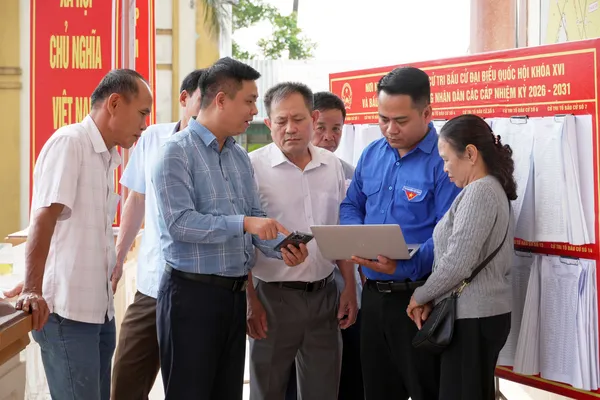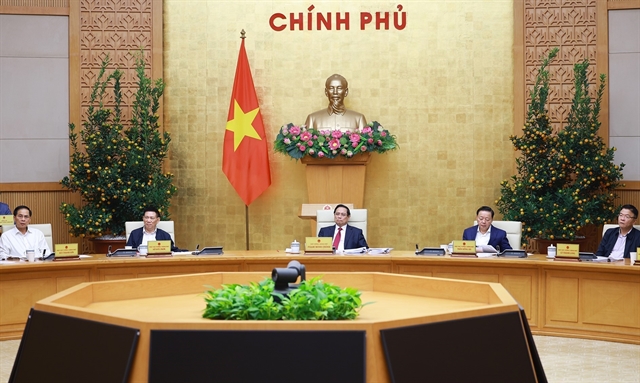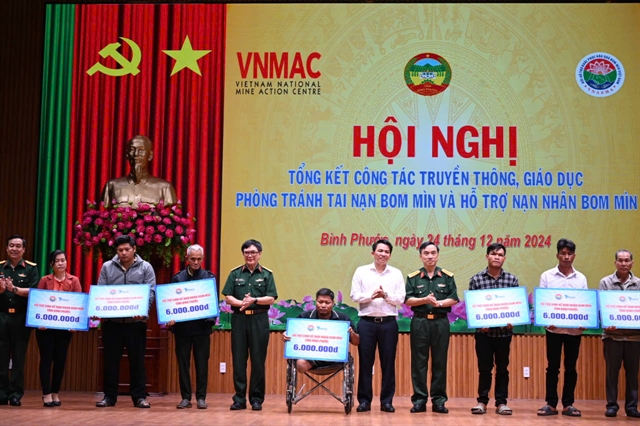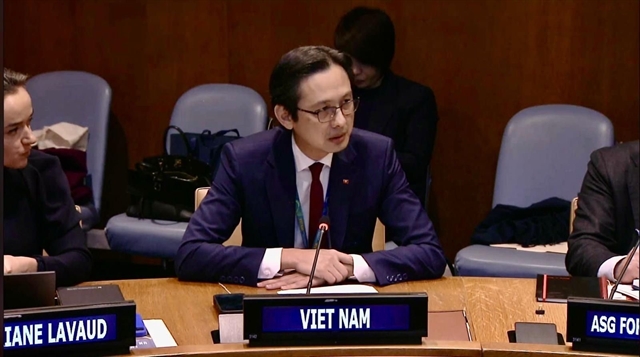 Society
Society

 |
| Representatives of the Việt Nam National Mine Action Centre give presents to mine victims in Bình Phước Province. — Photo courtesy of the VNMAC |
BÌNH PHƯỚC — By the end of last year, about 5.6 million hectares in Việt Nam were still littered with bombs, mines and explosives left from the resistance wars, equivalent to 17.7 per cent of the country's land area.
The information was disclosed on Tuesday at a conference held by the Việt Nam National Mine Action Centre (VNMAC) in coordination with the Bình Phước Province People's Committee.
The conference aims to educate the public on preventing mine and other explosive accidents and supporting mine and bomb victims in the province.
Việt Nam suffered heavily from the consequences of bombs, mines and explosives left over from the resistance wars, said the VNMAC.
The bombs, mines and unexploded ordnance are currently scattered across all 63 provinces and cities in the country, but are more concentrated in the central and northern border provinces.
Bình Phước Province has about 208,889ha still contaminated with bombs and mines, accounting for 30.46 per cent of its total land area, concentrated in Bù Đốp and Phú Riềng districts and Chơn Thành Town.
Over the years, Việt Nam has made efforts to carry out mine collection and clearance campaigns nationwide for people's welfare and socio-economic development.
At the same time, the country promotes education on mine accident prevention and runs different programmes to support victims of mine accidents.
Due to efforts to mitigate the impact of post-war mines and bombs, the contaminated area has been reduced.
However, mine accidents and explosives left over from the war still threaten people's lives every hour, especially in heavily contaminated areas.
Colonel Giang Công Báu, Deputy General Director of VNMAC, said that on June 22 last year, the Prime Minister approved the National Action Programme to overcome the consequences of post-war bombs and mines through 2025.
The programme focuses on perfecting laws, national standards and norms on mitigating the impact of bombs and mines.
It will clear about 500,000ha of bombs and mines to serve socio-economic development, with a goal of reducing the number of accidents caused by bombs, mines and explosives nationwide to zero by next year.
Every year, VNMAC develops plans to raise awareness of mines and prevent accidents in provinces with large numbers of mines, including Bình Phước Province.
This year, VNMAC is closely coordinating with the provincial Department of Information and Communications to provide documents, images and videos about mine accident prevention.
The content is posted and broadcasted on radio, television, and grassroots information systems.
The centre also directly guides the provincial Military Command, Border Guard Command, Bình Phước Newspaper, Bình Phước Radio, and central press agencies stationed in the area along with other departments to help people learn about mine accident prevention.
At the district level, VNMAC organised 21 training sessions with 850 participants. At the commune level, 33 sessions were organised with 3,300 participants.
A total of 18 mobile film screenings were held in 12 communes, attracting 3,450 viewers.
In addition, guidance was spread on villages' loudspeaker systems weekly from 5pm to 6pm, Monday to Friday.
Instructions were also given on agencies' and localities' fanpages and on social networks such as Zalo, Facebook and Tik Tok.
VNMAC also worked with the Bình Phước Department of Education and Training to launch the contest 'School ambassadors in overcoming the consequences of bombs, mines and explosives left over from the resistance war' from November 19 to December 4 this year.
The contest conveyed messages and knowledge about the risks of bomb and mine accidents left over from the war to teachers, students and the masses. — VNS




